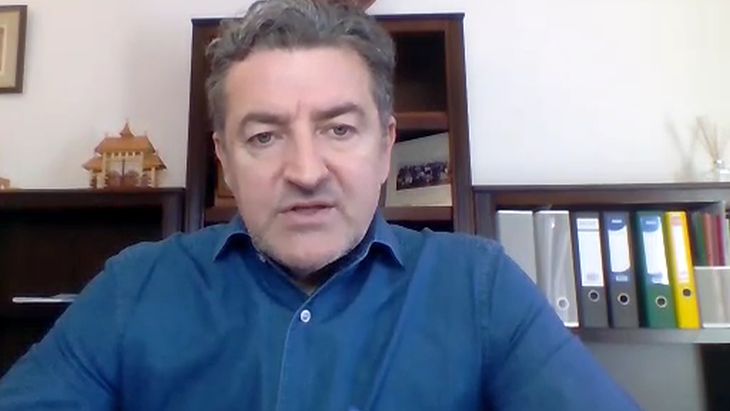On the anniversary of 30 years of activity, the Adrem group aims to become the main Romanian actor in the energy transition at the national level by 2030, said Corneliu Bodea, CEO of the group, at EnergynomicsTalks. Concretely, the actions considered are structured on two key directions: digitization of the energy infrastructure and energy efficiency.
In the first category, Adrem includes software solutions, analyses, grid management, but also the involvement in the development of smart metering systems, from the verification, installation and reading of the equipment, said Corneliu Bodea. The second, services for energy efficiency, includes, according to Adrem’s strategy, photovoltaic projects for prosumers, but also building small and medium-sized photovoltaic parks. “Our main target is the industrial and municipal area, with solutions of 100, 200, up to 400 kW, but we do not ignore the area of household prosumers either. We continue to develop energy efficiency products such as heat pumps and small and medium-sized integrated solutions for energy management in industrial and commercial environments,” CEO of Adrem also said.
Already from 2023, Adrem installs around 1MW of generation capacity from photovoltaic sources every month. “We aim to finish this year with a capacity to install 2 MW per month. There is demand, we have projects. We need to further develop, not necessarily the execution capacity, because we already have over a thousand electricians across the country, but rather the ability to manage a large number of small projects across the country, with a CRM system, with after-sales services, support, etc.”
The development directions assumed by the Adrem group are at the same time the most important channels of manifestation of the energy transition, a phenomenon that Corneliu Bodea considers not only beneficial, but a historical opportunity for Romania. “The moment of energy transition, of explosive growth of works for the energy transition, finds the Romanian energy infrastructure at an ideal moment, when there was however a need for the reconstruction of an outdated energy infrastructure, built at the end of the 60s-70s. It is the optimal moment for the modernization of this industry, with the goal and based on the benchmarks of the energy transition.”
Corneliu Bodea insisted on a perspective less present in the public debate, but essential, according to him. The energy transition is a means by which humanity has proposed itself to achieve climate neutrality, to reduce the impact that human activity has on the environment. “This strategic goal of mankind also means going through some less pleasant stages, including the increase in energy costs for every citizen. That is why, for the success of the energy transition, a conscious, benevolent, even involved political and social framework is needed. I am referring mainly to the population, to energy consumers, be they domestic or industrial, but also to the political factor, the one responsible for explaining why the energy transition is needed. Otherwise, it will only be facilitated by the price factor, which can fuel unrest and social discontent, if not a serious economic crisis to which some companies will not be able to adapt”, argued Corneliu Bodea. “In my opinion, here is the most work to be done. The rest are more technical issues,” which can be solved through entrepreneurial, problem-identifying and resource-management approaches, he concluded.
